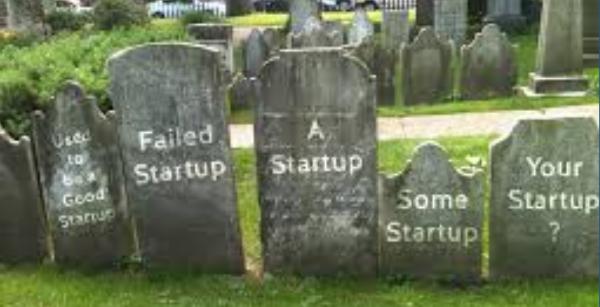On the Undertaker of Silicon Valley, again
and what “Innovation” really means.

The “Undertaker of Silicon Valley” is, as I reported last year, the firm that prospers because Startups cannot die Open Source.
This year, the economic freeze caused by COVID19 is making that Undertaker even happier, that is busier, than usual.
“If there’s no revenue incoming and there’s no money investing, the company is basically insolvent and out of business,” says the Undertaker’s manager: “We basically come in and clean up the messes.”
Now, because of the pandemic, the Undertaker is cleaning “two to five [messes] a day, instead of the usual “two, three to four a week”.
In other words, the pandemic is showing in full light how embarrassingly, stupidly fragile what we call “innovation” and “economy” really are, and startups are no exception:
- “Hundreds of startups have shed workers. Other firms have had to fully liquidate”
- “At least 21,000 employees across more than 200 startups have been laid off since early March”
- “This pandemic could dramatically change startup culture”
Really? That is bad. Not.
I said almost two months ago that, whatever the number of COVID19 victim was, it was too high to take it lightly, or to not pay its unwilling victims the highest respect. I confirm it today: the sooner this ends, the better, because it is real, it is serious and it is ugly. To see more closely why I say so, read my coronavirus reports.
But if this pandemic really “dramatically changed startup culture”, I for one would be quite happy of that particular outcome.
Because such a culture change would hardly, as NPR argues “deeply impact the ability to innovate” of the US, or any other country.
It is true that, once the pandemic ends, fewer jobs will remain, in startups or any other sector, “Companies will be used to operating on a shoestring, also. So they’ll have found ways to potentially automate things or do something with fewer employees, and those practices will linger, because it’s all about efficiency”.
But considering how… silly the startup scene was in 2019, any “change in startup culture” is (finger crossed) likely to steer at least a bit more resources than before to solve real problems, rather than inventing fake ones. The resulting change to some more real innovation will never happen too early, if you ask me.
(This post was drafted in April 2020, but only put online in August, because… my coronavirus reports, of course)
Who writes this, why, and how to help
I am Marco Fioretti, tech writer and aspiring polymath doing human-digital research and popularization.
I do it because YOUR civil rights and the quality of YOUR life depend every year more on how software is used AROUND you.
To this end, I have already shared more than a million words on this blog, without any paywall or user tracking, and am sharing the next million through a newsletter, also without any paywall.
The more direct support I get, the more I can continue to inform for free parents, teachers, decision makers, and everybody else who should know more stuff like this. You can support me with paid subscriptions to my newsletter, donations via PayPal (mfioretti@nexaima.net) or LiberaPay, or in any of the other ways listed here.THANKS for your support!